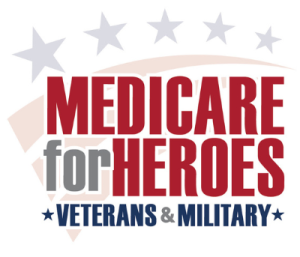Medicare A & B Overview
Medicare is health insurance for people 65 and older, on disability, or with End Stage Kidney disease. There are 5 “parts” to Medicare with the foundational ones being Parts A & B. Medicare Part A covers inpatient hospitalization, skilled nursing facility, home health, and other care. Medicare Part B covers doctors and outpatient medical care. When you have Medicare, Parts A & B work together to help you cover medical costs and get the care you need.
It is important to know that Medicare A & B does not cover all medical costs. Just like traditional insurance, you have deductibles and copays when you receive medical care. On a second note, maybe even more important , is that there are no annual limits to your deductibles and copays with Parts A & B. This means that if you only have Parts A & B, your out of pocket medical bills are virtually unlimited. It also does not provide benefits for non medical care like; prescription pharmacy benefits, dental, and vision. The out of pocket costs and items not covered by Medicare A & B are often referred to as the “Gaps” in Medicare.
What Are Medicare’s “Gaps?”
Watch this short video “Medicare’s 5 Most Expensive Gaps” to learn all about the Gaps in Medicare.
Medicare’s 3 Other Parts
Besides A & B, Medicare has 3 other parts. These parts are designed to help you fill the gaps and enhance your Medicare coverage. See below for each of these other parts and go to their section to learn more.
Medicare Supplements are secondary insurance plans that help you cover deductibles & copays with Medicare A & B. Click Here to learn more.
Medicare Advantage are health plans provided by private insurers. They can help you get more benefits than just A & B. Click Here to learn more.
Part D plans provide prescription coverage at the pharmacy. They can help you access and pay for your medications.
Medicare Frequently Asked Questions
What is Medicare and what does it cover? Medicare is federal health insurance for people 65 and older, on disability, and people with End Stage Renal Disease. Medicare consists of 5 Parts; A, B, C, D and Medicare Supplements. Part A covers you when you’re hospitalized, Part B covers you at the doctor & for other outpatient care. Part C is when you get your Medicare through a private insurer. Part D is prescription coverage for medications filled at the pharmacy. Medicare Supplements help you pay for Part A & B medical costs.
What is the benefit of working with Lone Star Medicare? Medicare can be confusing and the government doesn’t directly provide you with all benefits. So, you have choices to make and things to do. As a top independent agency, we are a one stop guide and resource to help make your life easier. We can help you get the coverage you need and save money. There are also no fees or costs for you, it’s a win win.
What costs are associated with Medicare? Medicare has 2 types of costs; Monthly premiums and medical cost sharing. A premium is the cost you pay to have the coverage, typically monthly or quarterly. Cost sharing is what you pay when you have medical care. These are items such as deductibles and copay’s, often referred to as “Gaps.” The out of pocket medical costs vary depending on the type of care you’re receiving. Medicare Supplements and Advantage Plans can give you more coverage and set limits on your out of pocket. Click Here to visit Medicare’s website for up to date costs.
What other coverage can I have with Medicare? There are two ways to have your benefits with Medicare; Original Medicare A & B or Medicare Advantage (also known as Part C). You cannot have both and you must choose between the two. If you have Original Medicare A & B you can also have a Medicare Supplement policy and a “Stand Alone” Part D prescription plan. Medicare Part C typically includes all of your benefits in one plan ( Including A, B, & D). It may also include extra benefits like dental and vision.
When can I start Medicare? If you are turning 65, you are eligible to start Medicare the first day of the month that you turn 65. If you are over 65 and have or are leaving employer insurance; you are eligible to start Medicare anytime. If you are disabled you will typically start Medicare 24 months after being awarded disability. If you have End Stage Renal Disease or ALS, you are usually awarded Medicare immediately.
When should I apply for Medicare? First, if you are already receiving Social Security payments when you become eligible for Medicare, you don’t need to apply. You will be automatically enrolled. If you are turning 65 and need to apply, you can do so 3 months before the first day of the month that you turn 65. If you are over age 65 and have insurance through your employer; you can apply anytime and your coverage can begin as soon as the first day of the next month. If you are receiving disability
How do I enroll in Medicare? There are 3 ways to enroll; 1. Apply Online through the Social Security website. 2. Call the Social Security Administration at 1-800-772-1213 and schedule an appointment to enroll by phone. 3. Enroll In Person – You can walk in to your Social Security office and apply. To schedule an appointment at your local office call them or the main Social Security number listed above or on their local number. If you are over 65 and only need Part B, you apply by filling out and sending in specific forms.

